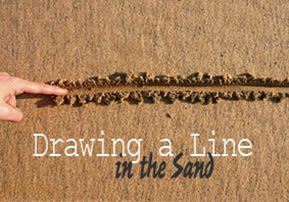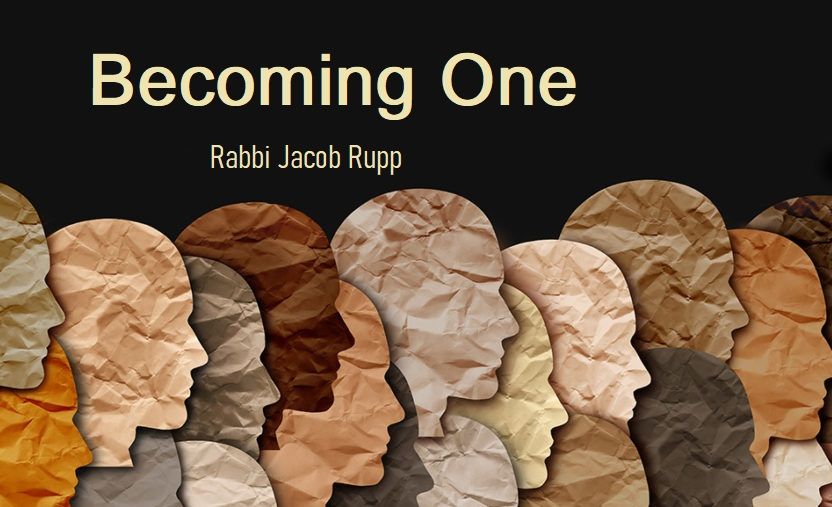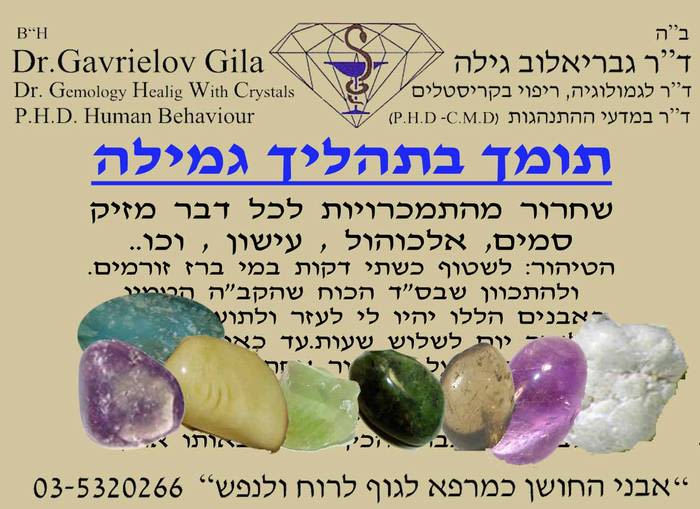
Ki Tisa: Drawing a Line in the Sand
For the average young American ambiguity and uncertainly seem constant. For the last fifty-some years, the soldiers of pluralism, liberalism...

For the average young American ambiguity and uncertainly seem constant. For the last fifty-some years, the soldiers of pluralism, liberalism, open-mindedness, and equality marched in a new age of peace and love. Or at least they tried. For those of us who grew up in the post 1960’s, moral ambiguity and freedom of choice were presented on a silver platter. Our political opinions, view of religion, and most everything else seemed up to us to define. With this contribution of our parent’s generation, the world should be a much friendlier place. Why then, after so many people fought for freedom from the constraints of a restrictive society, is the world becoming increasingly polarized and extreme? On what ground can we stand?
The parsha this week suggests that moral ambiguity is not a new innovation. While the struggle to define ourselves may seem contemporary, it is really as old as time. Although it may be somewhat of a disappointment that the modern identity crisis is not an original problem, there is peace of mind knowing that the foundation for success was laid long ago.
Parshat Ki Tisa recounts the grievous sin of the Golden Calf. Though this fiasco is oftentimes misinterpreted as mass idol worship, our Sages agree this was not the case. A small percentage of the Jewish people, fearing that Moshe would not return from Mt. Sinai, desired to create an intermediary between them and God to take Moshe’s place. They came to Aharon (Aaron) and demanded his assistance. He tossed the gold rings of the Israelites into a fire and a Golden Calf appeared. God informed Moshe – who was on Mt. Sinai – about the sin of the Israelites, and sent him down the mountain. Upon seeing the Golden Calf, Moshe broke the tablets he was carrying and cried out “Whoever is for God, join me!” (Shemot 32:26). At that moment, the Levites gathered around Moshe.
Through understanding Moshe’s words, we can begin to understand how to approach the identity crises of the modern age. When the sin occurred, moral ambiguity reigned amongst the Jewish people. Although only three thousand Jews were responsible for worshiping the Golden Calf, the entire nation was held responsible for allowing such a thing to happen in their midst. When Moshe asked Aharon what had gone so terribly wrong, Aharon commented that the Jewish people were inclined toward evil after having been exposed to the idolatry of the Egyptians for so long.
Rabbi Shimshon Raphael Hirsch explains, “Moshe recognized that the voice of truth and duty had completely disappeared from the nation. It had become free, unchained, and completely uncontrolled by lawfulness or conscience. It had reached this state because Aharon had failed to bring into it the voice of truth and duty with virile energy. On the side of the Law, no influence at all had been brought to bear, on the other side a very strong factor was active, to which, when the people were left to themselves, yielded without resistance” (Shemot 32:26).
Rabbi Hirsch blames the lack of central authority as a primary reason for this scenario. His statements reflect a Mishnah in Pirkei Avot, the Ethics of Our Fathers. “Rabbi Chanina, the Kohen Gadol says: Pray for the welfare of the government, because if people did not fear it, a person would swallow his fellow alive” (Pirkei Avot 3:2).
Our Sages teach that man will descend into chaos if he is not challenged to overcome his base, animalistic desires. These desires include any impulses that are not spiritually oriented, or done “for the sake of Heaven.” Many societies, past and present, do not share the Jewish belief in the necessity to control these impulses. These societies often focus on the pursuit of happiness as the most important human accomplishment. “Do what makes you happy” is a popular phrase.
Therefore, there exists a common belief that the individual is free to behave however he wishes. It is often stipulated that one is free to do whatever he wants as long as he does not harm his fellow. This concept is also seemingly subjective. For example, can one drive the newest SUV with the knowledge that it might harm the environment? Is it ethical to have an abortion even though the life in question has not yet been born? The answers depend on whom you ask.
Torah-observant Jews have remained committed to the same definition of truth and morality throughout their long history. The Jewish people are commanded to take a different perspective than those who believe that physical gratification is the most important goal in life, and that individuals are free to act as they wish. Jews also attempt to derive the maximum amount of pleasure from their lives, but this is not their highest pursuit. Our Sages recognize that happiness void of truth is empty.
Only through the acquisition of truth is real happiness possible. This is one of the reasons why the Torah states that the Jewish people witnessed God performing miracles with their own eyes. These observations offer an absolute proof of the Divine. After accepting the reality of God’s existence, we try our best to live our lives in accordance with the will of God. By attaching to absolute truth, educating ourselves as to how God runs the world and what He expects of us, we are able to live our lives in the most positive way possible. Only through living in reality can we achieve maximum happiness, in spite of the fact that the Torah provides strict guidelines on how to live. It is these very restrictions that allow us to be free of those negative forces, which are the root of misery and discontent! In the same way that a string must be bound at either end to become a musical instrument, Torah offers the Jewish people the confines and dimensions necessary to derive the greatest symphony out of life.
The Jewish nation lost sight of absolute truth at the base of Mt. Sinai. When left to our own devices, some of our forefathers practiced idolatry while the rest of the nation stood by in silence. Moral ambiguity allowed the entire population to tolerate the actions of the few and as a result everyone suffered. When Moshe descended from the mountain and cried out, “Whoever is with God, join me!” he quite literally laid down the law! He shattered the Holy Tablets to make everyone aware they were not worthy of God’s words. This was necessary to bring the people back to reality. There are consequences for one’s actions!
It is very easy to connect the experiences of our forefathers with the challenges of today. We should note the timing of the Golden Calf fiasco. At the moment when the Jewish nation was at its peak, we were susceptible to moral ambiguity and sin. Moral ambiguity is often the result of assuming an elevated position. Man’s glory, honor, and possessions often blind him to the realities of the universe. As Hillel said, “The more flesh, the more worms; the more possessions, the more worry…” (Pirkei Avot 2:7).
The Jewish people were on a very high level when they received the Torah. L’havdil, one could liken this to the period of time following World War II, when the seeds for the modern philosophical outlook in America were planted. America was stronger and more capable than the other nations. We were “untouchable,” and as a result, many people developed viewpoints that were not in keeping with the reality of the world. Today, with global terrorism on the rise, American and Israeli political blunders becoming the norm, suicide bombings, war, and genocide, it is evident the world is returning to an increasingly dangerous and immoral place. It seems that our generation is getting the reality check that was delayed for the past few decades.
No wonder my generation feels lost. Metaphorically, we were born in that surrealistic period of time that elapsed between Moshe ascending Mt. Sinai and returning to smash the Tablets. Golden calves are everywhere and everyone is dancing. Between the extreme left and right in America, and the multitude of apathy that lies in between, searching for meaning in 2006 seems almost futile. Perhaps it is because a lack of meaning is so widespread that the Baal Teshuva Movement is gaining such momentum, and so many Jews are rebuilding their connection with the Almighty through mitzvah observance. Only through establishing truth can one anchor one’s life. It is only once a person has decided what to live for, can one attempt to reach his potential!
While this is encouraging, it is not enough. The sin of the Golden Calf did not simply bring the Jews back to the level they were prior to receiving the Torah. Rather, it put them in such a spiritual low that God nearly wiped us out. Had Moshe not pleaded on our behalf, we would not be here today. Therefore, the Chofetz Chaim says, “If someone remains morally strong for the sake of God’s glory, remaining unmoved by any attempts to follow the new paths that are against God’s will, God will surely bless him. His name and memory will find immortality in Heaven above” (Let My People Go, Shemot p.144).
It is not enough for us to simply seek out truth for our own peace of mind. The Jewish people function as one body. As soon as we are able to anchor ourselves in Torah, we are obligated to help others find their way back. Granted, this is not an excuse to start yelling, “Whoever is with God, join me!” in your local supermarket. We could probably agree that’s a step in the wrong direction. It is, however, imperative for us to be an inspiration to those around us.
In the same way that Moshe saved the Jewish people by supplicating himself to God and begging for His mercy (Shemot 32:14-33:6), we too have the ability to pull our people back to exalted heights. It is through this return to a holy life that we express our enduring love for God. Since the Levites flocked to Moshe when he cried out that those loyal to God should join him, their descendants are separated and exalted amongst the Jewish people. From here we learn that while we are mortal, our righteous actions endure forever. May we merit leaving our children an unambiguous world, where the path to righteousness is obvious, in the hopes that they can reach heights inaccessible to us.












Tell us what you think!
Thank you for your comment!
It will be published after approval by the Editor.